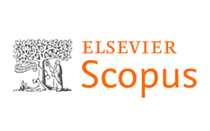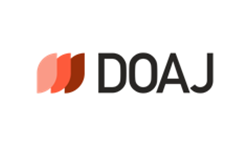ЄВРОПЕЙСЬКА МОДЕЛЬ КЛІМАТИЧНО НЕЙТРАЛЬНОГО РОЗВИТКУ БІЗНЕСУ НА ЗАСАДАХ ДІДЖИТАЛІЗАЦІЇ
Ключові слова:
Європейський Союз, кліматична нейтральність, бізнес, МСП, діджиталізація, зелений-цифровий перехід.Анотація
У статті досліджено особливості та підходи до кліматично нейтрального розвитку бізнесу в Європейському Союзі (ЄС) на засадах цифрової трансформації. У дослідженні зосереджено увагу на малих та середніх підприємствах (МСП), які генерують вагому частку викидів світової економіки та потребують форсованої інтеграції ефективних моделей декарбонізації. Показано, що частка викидів МСП у бізнес-секторі та їхнє енергоспоживання є вихідними показниками для оцінювання кліматично нейтрального розвитку та значно варіюють у різних країнах ЄС. Водночас у праці акцентовано на значному розриві між МСП та великими корпораціями за рівнями їхньої готовності до реалізації різних кліматично орієнтованих ініціатив та спроможності до інтеграції цифрових технологій. У статті наведено систематизацію можливостей діджиталізації у скороченні вуглецевого сліду за різними сферами викидів МСП, що охоплюють прямі викиди промислових процесів, непрямі викиди від енергоспоживання та ключових ланок ланцюга створення вартості. Виок ремлено п’ять кластерів цифрових рішень, які найбільш ефективні та мають особливу підтримку в європейській моделі кліматично нейтрального розвитку. Визначено системні напрямки та рекомендації для її посилення.
Класифікація за JEL: F20, L86, О10, Q40.
Посилання
OECD (2022), «Financing SMEs for sustainability: Drivers, Constraints and Policies», OECD SME and Entrepreneurship Papers, No. 35, OECD Publishing, Paris. https://doi.org/10.1787/a5e94d92-en.
OECD (2023), «Assessing greenhouse gas emissions and energy consumption in SMEs: Towards a pilot dashboard of SME greening and green entrepreneurship indicators», OECD SME and Entrepreneurship Papers, No. 42, OECD Publishing, Paris. https://doi.org/10.1787/ac8e6450-en.
Stoker, L., Ghosh, U. Shao, X. (2023). Reuters Impact: Global Sustainability Report. https://www.thomsonreuters.com/en-us/posts/wp-content/uploads/ sites/20/2023/10/Sustainability-Report_Reuters-Impact.pdf
Vasilescu, M. D., Dimian, G. C., Gradinaru, G. I. (2023). Green entrepreneurship in challenging times: a quantitative approach for European countries. Economic research-Ekonomska istraživanja. 36(1), 1828-1847.
Ogrean, C., Herciu, M. (2021). Romania’s SMEs on the Way to EU’s Twin Transition to Digitalization and Sustainability. Studies in Business and Economics, 16, 282-295. https://doi.org/10.2478/sbe-2021-0040.
Mojska, K. (2023). Multinational Enterprises’ Mandatory Human Rights and Environmental Due Diligence. The Case of European Union Law Underway. Przegląd Prawa Konstytucyjnego. https://doi.org/10.15804/ppk.2023.04.21.
Maksymova, I., Kurylyak, V. (2022). World industry digitization in the context of ensuring climate neutrality. Journal of European Economy, 21(3), 343-360.
Capros, P., Zazias, G., Evangelopoulou, S., Kannavou, M., Fotiou, T., Siskos, P., Vita, A., & Sakellaris, K. (2019). Energy-system modelling of the EU strategy towards climate-neutrality. Energy Policy. https://doi.org/10.1016/ j.enpol.2019.110960.
Lenz, N., & Fajdetić, B. (2021). Globalization and GHG Emissions in the EU: Do We Need a New Development Paradigm?. Sustainability. https://doi.org/ 10.3390/su13179936.
Axelson, M., Oberthür, S., & Nilsson, L. (2021). Emission reduction strategies in the EU steel industry: Implications for business model innovation. Journal of Industrial Ecology, 25, 390 - 402. https://doi.org/10.1111/jiec.13124.
Bastar, K., & Pucihar, A. (2023). Pregled obstoječih orodij za merjenje digitalne zrelosti. 42nd International Conference on Organizational Science Development. https://doi.org/10.18690/um.fov.3.2023.57.
Ogrean, C., & Herciu, M. (2021). Romania’s SMEs on the Way to EU’s Twin Transition to Digitalization and Sustainability. Studies in Business and Economics, 16, 282-295. https://doi.org/10.2478/sbe-2021-0040.
Krogt, A., Rensma, A., & Reijswoud, V. (2023). Twin Green and Digital Innovation by SMEs in the Construction Sector. European Conference on Innovation and Entrepreneurship. https://doi.org/10.34190/ecie.18.2.1473.
Ionascu, I., Ionascu, M., Nechita, E., Săcărin, M., & Minu, M. (2022). Digital Transformation, Financial Performance and Sustainability: Evidence for European Union Listed Companies. www.amfiteatrueconomic.ro. https://doi.org/ 10.24818/ea/2022/59/94.
SME Climate Hub (2023), SME Climate Hub Survey 2023, https://smeclimatehub.org/ wp-content/uploads/2023/02/SME-Climate-Hub-Survey-2023.pdf
Business NSW (2022), Unfinished Business – Putting small business energy policy back. https://www.businessnsw.com/content/dam/nswbc/businessnsw/thoughtleadership/November_2022_ECA_Survey_Report_low-res.pdf
Blundel, R., & Hampton, S. (2021). How Can SMEs Contribute to Net Zero?: An Evidence Review. State of the Art Review series, (51).
Agrawal, R., De Tommasi, L., Lyons, P., Zanoni, S., Papagiannis, G. K., Karakosta, C., ... & Güemes, E. L. (2023). Challenges and opportunities for improving energy efficiency in SMEs: learnings from seven European projects. Energy Efficiency, 16(3), 17.
IEA (2022), Coping with the Crisis: Increasing Resilience in Small Businesses in Europe through Energy Efficiency, https://www.iea.org/reports/coping-withthe-crisis-increasing-resilience-in-small-businesses-in-europe-throughenergy-efficiency
Hilger, L., Schneiders, T., Meyer, F. P., & Kroll, J. P. (2018, May). Use of smart technologies for energy efficiency, energy-and load management in small and medium sized enterprises (SMEs). In 2018 7th International Energy and Sustainability Conference (IESC) (pp. 1-8). IEEE.
Hilger, L., Große-Kreul, F., Feldhaus, C., & Schneiders, T. (2022). Digitally driven energy management practices in SMEs–exploring potentials and barriers. Die Unternehmung, 76(3), 360-380.
Tanane, B., Bentaha, M. L., Dafflon, B., Ferreiro, V., & Moalla, N. (2021, July). Toward an adaptive approach to implement predictive maintenance in metallurgical industry SMEs through IoT and AI. In IFIP International Conference on Product Lifecycle Management (pp. 537-547). Cham: Springer International Publishing.
Warren, P. (2017), «The Potential of Smart Technologies and Micro-Generation in UK SMEs», Energies, Vol. 10/7, 1050. https://doi.org/10.3390/en10071050
Fawcett, T. and S. Hampton (2020), «Why and how energy efficiency policy should address SMEs», Energy Policy, Vol. 140, p. 111337. https://doi.org/ 10.1016/j.enpol.2020.111337.
Jalo, N. et al. (2021), «Barriers to and Drivers of Energy Management in Swedish SMEs», Energies, Vol. 14/21, 6925. https://doi.org/10.3390/en14216925.
Mickovic, A. and M. Wouters (2020), «Energy costs information in manufacturing companies: A systematic literature review», Journal of Cleaner Production, Vol. 254, 119927. https://doi.org/10.1016/j.jclepro.2019.119927.
European Union (2022), Annual Report on European SMEs - SMEs and environmental sustainability. https://www.google.com/url?sa=t&rct=j&q= &esrc=s&source=web&cd=&ved=2ahUKEwjhirLYsPT9AhXpVaQEHTpBBcI QFnoECAwQAQ&url=https%3A%2F%2Fsingle-market-economy.ec.europa.eu %2Fdocument%2Fdownload%2F40742729-315d-48ed-b7f1-6335ce2819b 8_en&usg=AOvVaw1tEdd3rXSxkn8xsib
Johansson, I., Thollander, P., Baurecht, D., Engers, C., Esteban, E., Janssen, M., ... & Scimemi, G. (2020). Review of regional energy efficiency policies towards industrial SMEs from within Europe. In Proceedings of the ECEEE (pp. 15-22).
Fleitera, T., J. Schleich and P. Ravivanpong (2012), «Adoption of energyefficiency measures in SMEs - An empirical analysis based on energy audit data», Energy Policy, Vol. 51, 863-875.
Maksymova, I., Savelyev, Y., Zvarych, I., Kurylyak, V., Lyzun, M., Sachenko, S., & Lishchynskyy, I. (2023, September). Global Differentiation of Climate-digital Projects in Terms of Low-carbon Economy. In 2023 IEEE 12th International Conference on Intelligent Data Acquisition and Advanced Computing Systems: Technology and Applications (IDAACS) (Vol. 1, pp. 859-864). IEEE.
##submission.downloads##
Опубліковано
Як цитувати
Номер
Розділ
Ліцензія
Автори, які публікуються у цьому журналі, погоджуються з наступними умовами:
- Автори залишають за собою право на авторство своєї роботи та передають журналу право першої публікації цієї роботи на умовах ліцензії Creative Commons Attribution License, котра дозволяє іншим особам вільно розповсюджувати опубліковану роботу з обов'язковим посиланням на авторів оригінальної роботи та першу публікацію роботи у цьому журналі.
- Автори мають право укладати самостійні додаткові угоди щодо неексклюзивного розповсюдження роботи у тому вигляді, в якому вона була опублікована цим журналом (наприклад, розміщувати роботу в електронному сховищі установи або публікувати у складі монографії), за умови збереження посилання на першу публікацію роботи у цьому журналі.
- Політика журналу дозволяє і заохочує розміщення авторами в мережі Інтернет (наприклад, у сховищах установ або на особистих веб-сайтах) рукопису роботи, як до подання цього рукопису до редакції, так і під час його редакційного опрацювання, оскільки це сприяє виникненню продуктивної наукової дискусії та позитивно позначається на оперативності та динаміці цитування опублікованої роботи (див. The Effect of Open Access).








